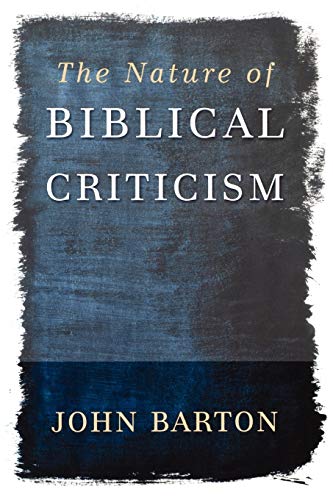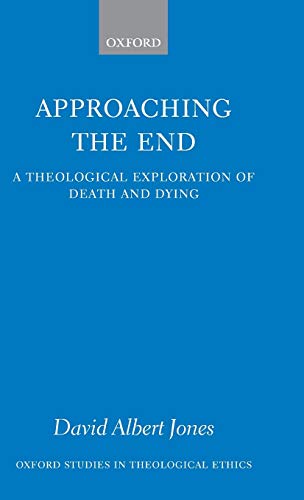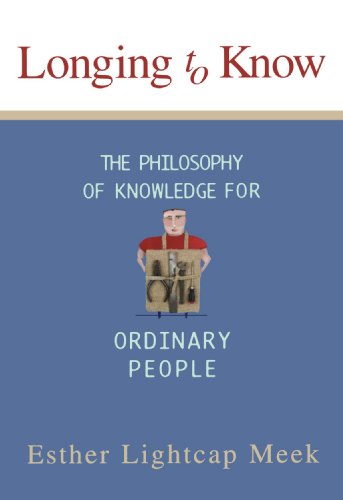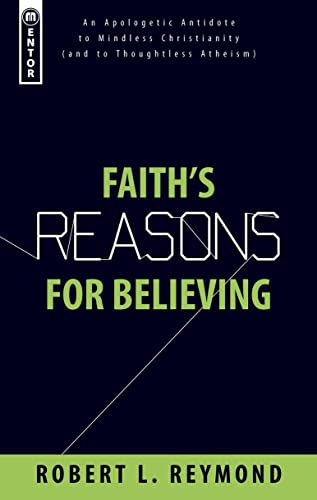Barton seeks to defend traditional biblical criticism from the prevailing notion that it is an antiquarian discipline. His primary contention is with biblical conservatives (who claim that it is positivistic, reductive, and religiously skeptical) and postmodernists (who contend that it rife with false objectivity and, therefore, cannot be taken seriously).
In the introductory chapter, Barton argues that biblical criticism, when carried out properly, is ‘a productive and mature discipline, which sets itself the task of understanding the biblical text’ (pp. 7–8), and, furthermore, points of commonality show that the rift between the various methods of biblical studies is exaggerated. For him, biblical criticism is essentially concerned with the ‘plain sense’ of the text, which are summarised in ten theses that may be paraphrased as follows (pp. 5–7):
- Biblical criticism is a literary operation that is focused on the semantics of words, sentences, and whole texts.
- Biblical criticism is only incidentally concerned with questions of ‘Introduction’ (e.g., date, authorship, composition, etc.) and history. Understanding, not reconstruction, is the aim.
- Biblical criticism can be traced back much further than the Renaissance, Reformation, and Enlightenment, which suggests that the contrast between critical and precritical interpretation is flawed.
- Biblical criticism is not reductive or skeptical, but seeks out the ‘deeper meaning’ and possibly multiple meanings in a given text.
- Biblical criticism is not so much the application of ‘scientific’ methods to the Bible as much as science shares with it a common concern for evidence and reason.
- Biblical criticism does not rule out the question of the truth of a text before reading it, but uncovers its semantic possibilities before determining whether what it asserts is true.
- Biblical criticism is not the only worthwhile way to read biblical texts, and liturgical or devotional readings are not precluded.
- Biblical criticism is ‘liberal’ in that it recognises the validity of secular reasoning, but it is not tied to ‘theological liberalism’ (e.g., Gerd Theissen).
- Biblical criticism aims to be ‘objective’ insofar as it attends to what the text actually says and does not import alien meanings into it.
- Biblical criticism is concerned with the ‘plain’ sense of texts (not to be confused with the ‘original’ sense—what the text ‘meant’ as opposed to what it ‘means’ now).
Barton proceeds by addressing the perception that biblical criticism is concerned primarily with difficulties, inconsistencies, and irregularities in the text (chap. 2). He responds to this by pointing out that the identification of difficulties in the text and attempts to deal with them are not a ‘modern’ practise as evidenced by Origen’s basis for the Hexapla and Augustine’s treatment of discrepancies between the Gospels. For him, the observation of difficulties in the text is not characteristic of biblical criticism. Rather, biblical criticism is ‘an inquiry into the biblical text that takes its starting point from the attempt to understand, a desire to read the text in its coherence and to grasp its drift’ (p. 30). Thus, contrary to Augustine’s attempts to ‘harmonise’ the Gospels, a purely critical approach would allow inconsistencies to stand.
In chapter 3, Barton argues that the ‘historical-critical method’ and biblical criticism are not the same. That is, the essence of biblical criticism is not concerned with the history of the biblical text, nor is it a methodology. It is critical, however, in that it seeks literary coherence and unity, ‘driven by a particular attitude toward texts and textual meaning’ (p. 68). He concedes on several occasions, however, that some practitioners indeed focus on history, matters of ‘Introduction’, or methodology (cf. pp. 26, 41, 44, 70, 80).
The heart of the book is chapter 4, which is his defence of the ‘plain sense’ as the primary concern of biblical criticism. He begins by distinguishing ‘plain sense’ from what it is not—‘original sense’, ‘intended sense’, ‘historical sense’, or ‘literal sense’. Each of these ‘senses’ are dealt with in detail. Not surprisingly, he concludes, ‘biblical criticism, in its quest for this plain sense, is a semantic or linguistic and a literary operation’ (p. 101), and any interest with the original, intended, historical, or literal meaning is only ‘indirect’. ‘The Origins of Biblical Criticism’ (chap. 5) is somewhat redundant as he traces the origins of biblical criticism beyond the Enlightenment and as far back as the patristic literature.
The final chapter, ‘Biblical Criticism and Religious Belief’, is perhaps the most fascinating and provides a helpful framework for further discussion. In it he examines the relationship of biblical criticism (as he defines it) with ‘religious belief’. He begins by presenting the arguments against traditional biblical criticism: the canonical approaches of Childs, Seitz, Moberly and Watson, ‘Advocacy’ readings and feminist criticism, and even from within the critical community itself (e.g., Eichrodt and von Rad). He responds by arguing that biblical texts must be read in two stages: first, ‘the perception of the text’s meaning’ and, secondly, ‘an evaluation of that meaning in relation to what one already believes to be the case’ (p. 159).
As with most of Barton’s volumes, this is a clear, well written book that is both accessible and thought-provoking. It provides much needed clarity and direction for further discussions on biblical criticism, theology, and hermeneutics. If there is a weakness, it is Barton’s tendency to generalise and overstate some of his points in his attempt to defend biblical criticism. His insistence, for example, that biblical criticism is not concerned primarily with matters of history or method is not entirely convincing. Also, Barton’s discussion on ‘commitment and neutrality’ (pp. 173–75), an important question to those of ‘confessional’ backgrounds, is brief and leaves the reader wanting. These minor points notwithstanding, it is a thorough and insightful book. Whether or not one agrees with his theses, it should be welcomed by scholars and pastors alike.
Seulgi L. Byun
Seulgi L. Byun
Grove City College
Grove City, Pennsylvania, USA
Other Articles in this Issue
Though his primary concern was how to persuade people from diverse backgrounds to embrace the gospel of Jesus Christ (1 Cor 9:12, 23), Paul, nonetheless, embodies a principle common to all who would provide leadership to a community comprised of a multiplicitous collection of rigid truth claims and behaviors...
The Ethnic Enemy—No Greek or Jew . . . Barbarian, Scythian: The Gospel and Ethnic Difference
by Keith FerdinandoWhatever 'globalisation' may be, it has been accompanied by insistent and sometimes violent affirmations of ethnic identity...
Despite a small flurry of attention over the past decade, Adolf Schlatter (1852–1938), Tübingen professor of New Testament and author of more than 440 written works, remains one of the most neglected yet illuminating theological voices of the past one hundred years...
Commentators have customarily interpreted Phil 2:12 as a reference to "working out" one's personal salvation...
Salvation History, Chronology, and Crisis:1 A Problem with Inclusivist Theology of Religions, Part 1
by Adam SparksA fundamental requirement in an inclusivist understanding of the relationship between Christianity and other religions is evidence of God's salvific activity outside of any knowledge of Christ...







